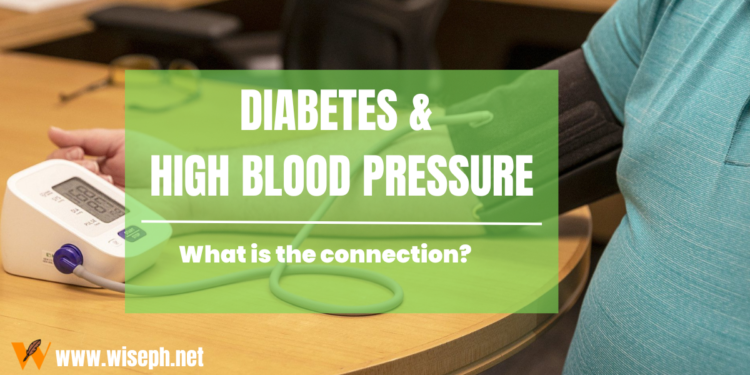Most individuals are aware of the dangers that diabetes and high blood pressure represent, but fewer may be aware of their connection. It is obvious that someone with diabetes has twice the risk of developing high blood pressure as someone without the disease. The patient is in danger of heart disease and stroke if excessive blood pressure is not managed. Furthermore, compared to people who do not have either of the illnesses, people with diabetes and high blood pressure are four times more likely to develop heart disease.
A patient with diabetes has a 50% chance of developing hypertension, and diabetic people have a harder time achieving their hypertension goals than non-diabetic patients do. The relationship between a doctor and a diabetic patient with high blood pressure needs to be two-way. The doctor should inform the patient of their blood pressure reading as well as their desired outcome. The patient can then become more motivated by being able to see what the objectives are.
Diabetes and Hidden Blood Pressure do to People
For people with high blood pressure, some lifestyle changes are necessary. If a patient is overweight, weight loss and an increase in physical activity are the two most effective lifestyle changes for lowering blood pressure. Physical activity will also help the patient lose weight. Patients with diabetes should begin a healthy diabetic diet that places less emphasis on sugar, fat, and carbohydrates. Keeping calories low is also vital because most diabetics gain weight.
The next significant diabetes treatment strategy is aggressively lowering blood pressure to less than 130/80 mmHg. Angiotensin II receptor blockers (ARBs) or angiotensin-converting enzyme (ACE) inhibitors should be the cornerstone of treatment if the kidney is implicated. This is due to the fact that ARBs and ACE inhibitors have a dual protective impact on the kidney in diabetics, lowering blood pressure as well. Additionally, they halt the advancement of kidney disease in those without diabetes.
In a face-to-face study of more than 350 doctors conducted in late 2005 in Singapore, Thailand, Taiwan, the Philippines, and India, 40% of the doctors admitted that more than 40% of their patients had both diabetes and hypertension. Only 5% of the physicians could, however, claim that the majority of their patients had good blood pressure control. These outcomes are consistent with those of other nations.
It is crucial to increase public knowledge about taking steps to prevent high blood pressure and diabetes since more and more individuals have numerous coronary heart disease risk factors. When is your next visit to a physician? Even if you believe that you are in good health, you should remember to ask your doctor to check your blood pressure and blood sugar levels. Prevention is and will always be a better treatment!












